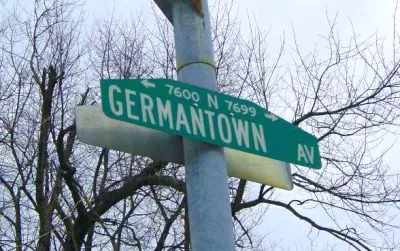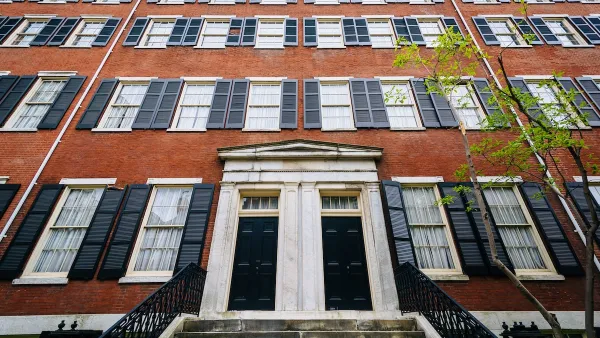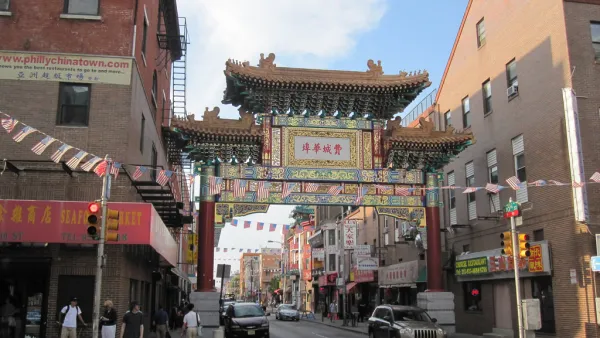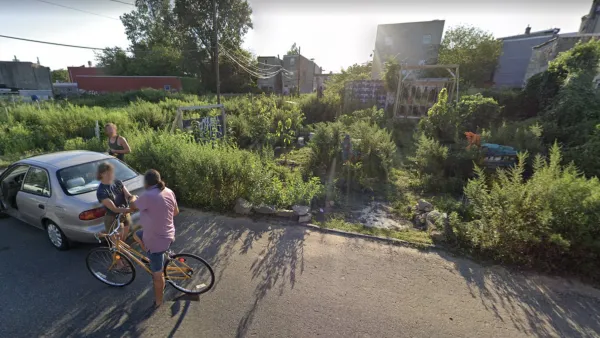Germantown has acquired many more wealthy residents without displacing many of its long-term residents or losing its diversity.

Philadelphia is the fourth most segregated city in the United States according to a study from Brown University, but Germantown is an exception. "Philadelphia overall is one of the country’s more diverse large cities: African-Americans make up 43 percent of the population; Caucasians account for 41 percent; and Asians and those who identify as other races make up about 6 percent each," Sandy Smith writes for Next City. Smith argues that Germantown in is a bit of a hidden treasure, unfamiliar to those outside of northwest Philadelphia, a neighborhood that's 80% African American with a wealth of homegrown resources and “third places,” whether barber shops or coffee houses.
Germantown is home to residents of a variety of different income levels and it has welcomed a mix of different people for centuries. "William Penn was a Quaker who left England to establish an American colony that would be tolerant to all religious beliefs. In 1683, Penn sold land in his new colony to Francis Daniel Pastorius so that the German religious dissident could establish a settlement where his fellow Pietists, as well as Mennonites and Quakers, could practice their beliefs freely," Smith reports.
Today, Smith argues, local developers and a slow pace of change has meant that, even as Germantown has become home to some wealthier residents, it has been able to maintain its character and not push out those who lived there already.
FULL STORY: How This Philadelphia Neighborhood Is Gentrifying without Displacement

National Parks Layoffs Will Cause Communities to Lose Billions
Thousands of essential park workers were laid off this week, just before the busy spring break season.

Retro-silient?: America’s First “Eco-burb,” The Woodlands Turns 50
A master-planned community north of Houston offers lessons on green infrastructure and resilient design, but falls short of its founder’s lofty affordability and walkability goals.

Delivering for America Plan Will Downgrade Mail Service in at Least 49.5 Percent of Zip Codes
Republican and Democrat lawmakers criticize the plan for its disproportionate negative impact on rural communities.

Test News Post 1
This is a summary

Test News Headline 46
Test for the image on the front page.

Balancing Bombs and Butterflies: How the National Guard Protects a Rare Species
The National Guard at Fort Indiantown Gap uses GIS technology and land management strategies to balance military training with conservation efforts, ensuring the survival of the rare eastern regal fritillary butterfly.
Urban Design for Planners 1: Software Tools
This six-course series explores essential urban design concepts using open source software and equips planners with the tools they need to participate fully in the urban design process.
Planning for Universal Design
Learn the tools for implementing Universal Design in planning regulations.
EMC Planning Group, Inc.
Planetizen
Planetizen
Mpact (formerly Rail~Volution)
Great Falls Development Authority, Inc.
HUDs Office of Policy Development and Research
NYU Wagner Graduate School of Public Service





























